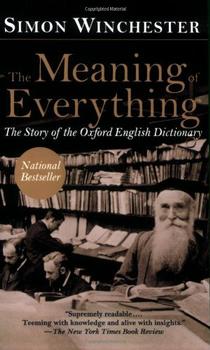Summary | Excerpt | Reviews | Readalikes | Genres & Themes | Author Bio

Critics' Opinion:
Readers' Opinion:
First Published:
Sep 2003, 256 pages
Paperback:
Oct 2004, 286 pages
The Latin-based hybrid tongue of the Roman-Britons that, had it remained unsullied by what happened next, might well one day have stood alone as the language of the islands, then dominated. In all but the most remote mountain valleys of Wales and Cumberland, and in those still more isolated Scottish glens where the much-feared and wildly painted Picts held sway, a form of language that would have been understood both by the subject natives and by the governors and legates who directed them and the soldiers who policed them was widely spoken. Had the events of the fifth and sixth centuries never taken place, Britain's linguistic evolution might have been much the same as that which was suffered or enjoyed by the similarly Roman-colonized peoples of Spain or France.
But in fact it was all to turn out very differently - and that was because, in the middle of the fifth century, the longboats of a score of entirely new and unanticipated invaders and settlers slid up from the east onto the beaches of southern and eastern England, where there are now such counties as Yorkshire, Norfolk, Essex, Kent, and Hampshire. The flimsy craft that had made it across the heaving grey waters of the North Sea had all set out from the ragged, north-jutting Baltic peninsula of what is now known as Denmark. The invaders themselves had an easy time of it; the Romans had gone, and the remaining Celts were in no position to mount much of a defence. They were in consequence to be swiftly dominated by the newcomers, invaders who were linguistically of Germanic stock - Teutons. But though the invaders arrived at more or less the same time, they were not all the same people. Some, to an extent indicated by where their longboats had been launched, were Frisians, other were Jutes, still other Saxons, and - most importantly for the naming of both the English nation and the language that resulted -some of them were called Angles. We know something of their arrival. Hengist and Horsa, for instance, were - according to legend - two Jutish brothers who landed at Ebbsfleet on the muddy Isle of Thanet in the mid-fifth century, established with their compatriots a series of settlements in Kent, Hampshire, and the Isle of Wight, and set about decades' worth of slaying every Celt they encountered. The Saxons did much the same, landing in 477 in East Anglia and spreading themselves south and westward, pushing the Celts relentlessly westward to Wales and Cornwall and the Scottish borderland. And the Angles, who arrived from Denmark at a series of landing places just to the north of the River Humber in 547, established a kingdom in what is now Northumberland. The Venerable Bede, writing in Latin from his monastery on Tyneside two centuries later, captured something of the ferment of the time:
In a short time, swarms of the aforesaid nations came over the island, and they began to increase so much that they became terrible to the natives themselves who had invited them. Then, having on a sudden entered into league with the Picts, whom they had by this time begun to expel by force of arms, they began to turn their weapons against their confederates ...
The consequence may have been bloodshed and turmoil, and the slaughter may have lasted for a very long and wretched time; but it left the makings of the first building blocks of what was to become today's English language. It also left a small number of names that are distinctly recognizable today. For example, the Teutons called the Celts wealas-foreigners-and it is from this word that we get the modern name Wales. The Celts first called their new oppressors Saxons, then Angles: King Aethelbert was known as rex Anglorum, the country became known as Anglia, and the words Engle; Englisc, and Englaland all slowly crept into common currency, until by the eleventh century the nation in the making was formally known as England.
Copyright Simon Winchester 2003. All rights reserved. No part of this book may be reproduced without written permission from the publisher, Oxford University Press.





The House on Biscayne Bay
by Chanel Cleeton
As death stalks a gothic mansion in Miami, the lives of two women intertwine as the past and present collide.

The Flower Sisters
by Michelle Collins Anderson
From the new Fannie Flagg of the Ozarks, a richly-woven story of family, forgiveness, and reinvention.

The Funeral Cryer by Wenyan Lu
Debut novelist Wenyan Lu brings us this witty yet profound story about one woman's midlife reawakening in contemporary rural China.
Your guide toexceptional books
BookBrowse seeks out and recommends the best in contemporary fiction and nonfiction—books that not only engage and entertain but also deepen our understanding of ourselves and the world around us.